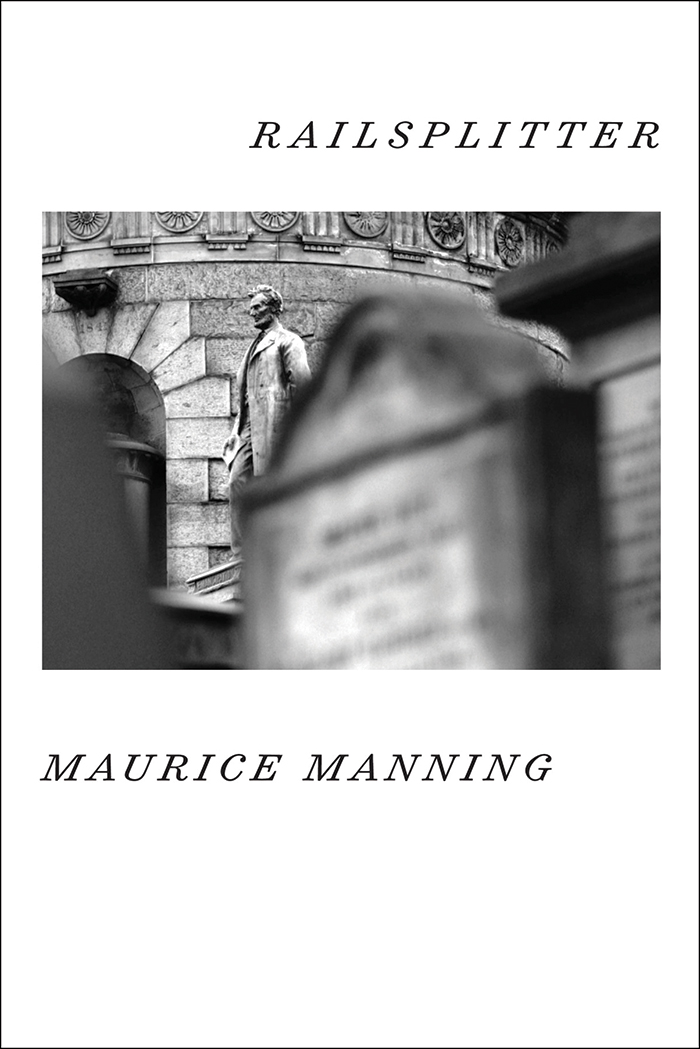
Railsplitter speaks, through poetry, in the imagined posthumous voice of Abraham Lincoln. Pulitzer finalist Maurice Manning has taken an approach both rigorous and playful, interpretive and researched, resulting in a complex extended meditation on the inner life of a major American icon. Invoking Lincoln’s apparent belief “in the value of whim and wonder,” historical narratives and philosophical ponderings alike are set to the music of lyric and the bounce of rhyme. Indeed, Railsplitter positions Lincoln—himself a poetry reader, despite his limited education—as an important influence on the American literary landscape. These poems wonder at small joys, turns of phrase, and ordinary human sorrows, while articulating with gravity the larger forces afoot—including the shame of slavery, and the responsibility to save the country from self-destruction. “An American habit is to fail / to recognize the symbolism / of what happens, even as / what happens always is also real,” Manning writes, and does his part to break this habit, looking with nuance at the simultaneous resonance of history’s real impact and the poetry it sets in motion.
ISBN: 9781556595714
Format: Paperback
Reviews
“Witty, whimsical, and imbued with the strangeness of the afterlife, Manning’s Lincoln is an endearing, complex narrator.” —The Millions
“Manning is at his best in quiet moments of stunning lyricism… There is a deep reverence for the ancestral spirit of the land, as if Kentucky’s rich hills and flowing streams were a part of its residents’ DNA. Manning’s verse resonates with the plaintive loneliness of his rural landscapes and the divine presence that alleviates that loneliness, be it God, one’s forebears, or poetry.” ―Publishers Weekly
“He nails his images the way a restless boy, up in a tree with a slingshot, nails anything sentient that wanders into view.” ―New York Times Book Review
“Myth-making is a more important business than what’s true and false, and Manning’s ability to transcend the problem so blithely on the strength of his overall conception is impressive.” ―Contemporary Poetry Review
“…within a few lines, the language becomes layered and hints at the constant intersection of the present and the eternal.” ―Washington Post
“[Railsplitter] features Manning’s trademark historical focus with a sharpened edge, as he interrogates the people and ideas that birthed this strange and mystical country… Never does Railsplitter eulogize or yearn for a simpler, romanticized time. Instead, the book attempts to render the early and complicated American president for what he was—a lenient parent, a homegrown thinker, a courtroom cut-up, and an un-ironic believer in the truth of our common experience.” —The Adroit Journal
